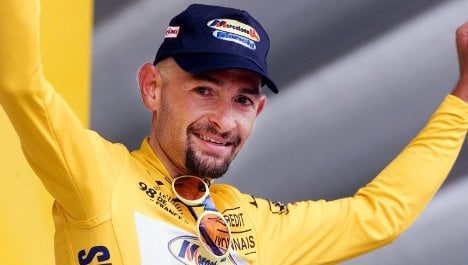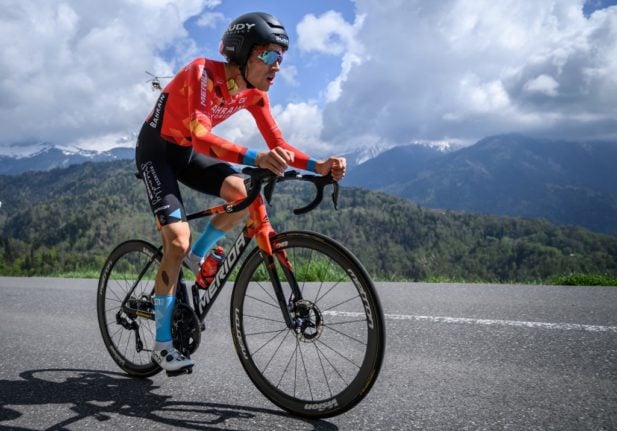In a report obtained by AFP, Professor Franco Tagliaro's assertions appear to contradict claims by Pantani's family that the 34-year-old cyclist was the victim of homicide a decade ago.
They have also added to speculation that Pantani may have accidentally committed suicide.
Officially, Pantani died from a heart attack brought on by massive cocaine consumption at the Hotel Le Rose in Rimini on the night of February 14th 2004.
An autopsy by state pathologist Giuseppe Fortuni, of which AFP has obtained a copy, released two days after his death said Pantani died from a "terminal cardiovascular collapse, edema and congestion of the brain with small subarachnoid hemorrhage, massive pulmonary congestion."
The investigation was reopened by Rimini prosecutors in August after Pantani family lawyer Antonio De Rensis provided fresh evidence said to support claims of foul play.
Prosecutors turned to Tagliaro to reassess the evidence but he believes Pantani died "from an acute heart attack brought on by a mixture of medicinal drugs and cocaine."
He added the death may be "due to excessive consumption of anti-depressants…with the ultimate aim of self-destruction."
In a video of the crime scene investigation, seen in its entirety by AFP on Monday, packets of anti-depressant pills called Surmontil can be clearly seen in Pantani's room, where cocaine is also found.
Murder plot now in doubt
Tagliaro's claims have delivered a blow to claims by Pantani's mother Tonina that her son, who became dependent on cocaine shortly after his expulsion from the 1999 Giro d'Italia for suspected doping, was murdered.
Francesco Maria Avato, a professor at the Department of Biomedical Science at the University of Ferrara who was commissioned by the family earlier this year, claimed the "huge amount of drugs found in Pantani's body suggested he could not have possibly ingested the drugs, in such amounts, by traditional methods".
Avato's testimony helped fuel speculation that Pantani was killed by a third party who forced him to ingests massive quantities of the drug.
However Giovanni Greco, a doctor who treated Pantani in the years before his death, has already testified to saving Pantani from acute cocaine poisoning on five previous occasions.
Professor Tagliaro said Avato's report amounted to "calculated estimations".
Avato also evoked the possibility that Pantani, who was found with severe bruising to the right side of his face, was struck by a third party prior to his death.
Tagliaro, who on Tuesday affirmed that Pantani "was neither assaulted nor hit before he died", believes the cyclist was not forced to ingest the massive quantities of drugs that killed him.
"There is no concrete proof to suggest he was forced to ingest anything," Tagliaro added in his latest report.
The Pantani family lawyer, Antonio De Rensis, also claimed the behaviour of a forensics team investigating the crime scene left many questions unanswered.
Faced with increasing scrutiny in recent months, the officers in question released a statement through lawyers threatening to launch defamation proceedings.



 Please whitelist us to continue reading.
Please whitelist us to continue reading.
Member comments